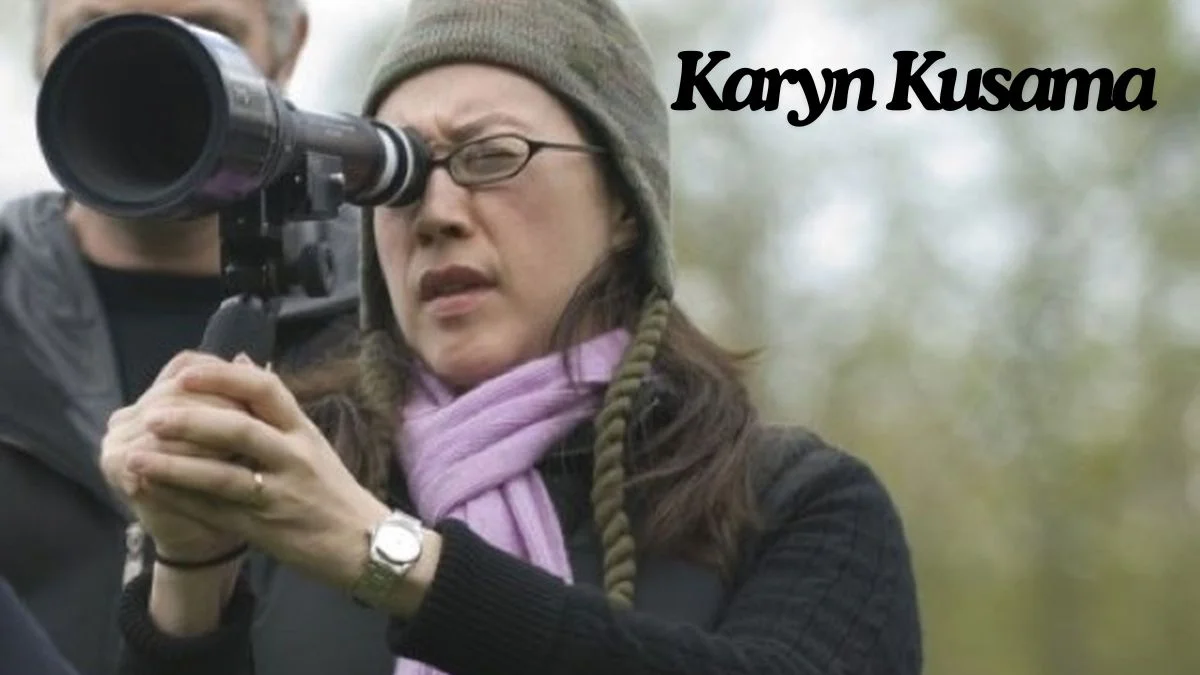Karyn Kusama, born on March 21, 1968, in St. Louis, Missouri, is a prominent American filmmaker known for her distinct narrative style and compelling character-driven stories. With a career spanning over two decades, Kusama has made a significant impact on the film industry, particularly in genres often underrepresented by female directors. Her work continues to resonate with audiences and critics alike, showcasing her talent for exploring complex themes through a cinematic lens.
Early Life and Education
Kusama was born to Haruo Kusama, a Japanese American child psychiatrist who immigrated from Japan, and Susan McGuire, an occupational therapist of Scots-Irish descent. Growing up in a multicultural household, Karyn Kusama was exposed to a variety of perspectives that would later influence her storytelling. Her early interest in film began as a means of self-expression and understanding, allowing her to feel seen in a world where representation was limited.
From a young age, Kusama was captivated by the world of cinema, often finding solace in the films she watched. She cites female directors like Martha Coolidge and Amy Heckerling as early inspirations, particularly their works such as Valley Girl and Fast Times at Ridgemont High. These films showcased strong female characters and nuanced storytelling, prompting Kusama to pursue her passion for filmmaking.
Karyn Kusama graduated from Ladue Horton Watkins High School in St. Louis, where her enthusiasm for film only deepened. In 1990, she earned a Bachelor of Fine Arts in Film & Television from New York University’s Tisch School of the Arts. During her time at Tisch, she honed her skills in screenwriting and directing, laying the foundation for her future projects.
Breakthrough: Girlfight
Kusama made her feature directorial debut with the critically acclaimed film Girlfight in 2000. The film tells the story of Diana, a troubled teenager who discovers her talent for boxing as a means of overcoming her struggles. Girlfight was groundbreaking for its portrayal of a strong female protagonist in a traditionally male-dominated sport.
The film premiered at the Sundance Film Festival, where it received widespread acclaim. Karyn Kusama’s direction earned her the Best Director award and the Grand Jury Prize, making her the first woman to win the latter at Sundance. Additionally, she received a nomination for the Independent Spirit Award for Best First Feature. Girlfight not only showcased Kusama’s talent as a filmmaker but also solidified her place in the industry as a visionary storyteller.
Exploration of Themes
Karyn Kusama’s work often delves into themes of identity, female empowerment, and the human experience. Following the success of Girlfight, she directed Æon Flux (2005), a science fiction film based on the animated series. Despite its mixed reviews, Æon Flux demonstrated her versatility as a director, transitioning from intimate dramas to larger-scale productions. The film starred Charlize Theron, and while it did not achieve the same critical acclaim as her debut, it expanded Kusama’s filmography and experience in diverse genres.
In 2015, Kusama returned to her indie roots with The Invitation, a psychological thriller that examines themes of grief, trauma, and the impact of unresolved relationships. The film follows a man who attends a dinner party hosted by his ex-wife and her new husband, leading to a tense exploration of the past. The Invitation received positive reviews and further established Kusama as a master of suspenseful storytelling.
Her 2018 film, Destroyer, features Nicole Kidman in a transformative role as a detective grappling with the demons of her past. The film was praised for its raw and gritty portrayal of trauma and redemption. Kusama’s ability to create complex characters facing moral dilemmas and personal struggles has become a hallmark of her filmmaking style.

Impact and Legacy
Karyn Kusama’s contributions to cinema have paved the way for future generations of female filmmakers. She has consistently challenged the industry’s norms, advocating for greater representation and diverse narratives. Her work is characterized by a commitment to authenticity and a focus on character development, which resonates with audiences across demographics.
Karyn Kusama has also spoken candidly about the challenges women face in the film industry, highlighting the importance of mentorship and support among female filmmakers. Her experiences have inspired many aspiring directors to pursue their passions, reinforcing the notion that diverse voices enrich the cinematic landscape.
In addition to her film work, Karyn Kusama has directed episodes for acclaimed television series, including Billions and The Girlfriend Experience. These projects further demonstrate her versatility and ability to engage with various storytelling formats, expanding her reach within the entertainment industry.
Conclusion
Karyn Kusama’s journey from a young film enthusiast to a celebrated director is a testament to her talent, perseverance, and dedication to storytelling. With films that challenge conventions and provoke thought, Kusama has carved out a unique space in American cinema. Her ability to tackle complex themes through strong character arcs continues to inspire audiences and filmmakers alike. As she continues to push boundaries and explore new narratives, Kusama’s influence on the film industry will undoubtedly endure, solidifying her legacy as a trailblazer in filmmaking.









